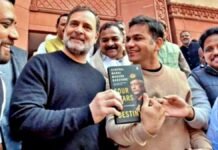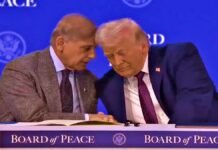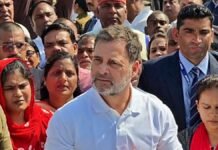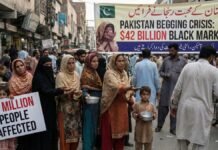
Key Points:
- No Handshake: Indian cricket players refused to shake hands with their Pakistani counterparts before or after their Asia Cup match, following a recent terrorist attack in Pahalgam, Jammu and Kashmir.
- Shahid Afridi’s Comments: Former Pakistan captain Shahid Afridi criticized the Indian government, accusing it of playing “Hindu-Muslim card” politics, while praising opposition leader Rahul Gandhi for his “positive mindset.”
- Political Backlash: The incident has ignited a political firestorm, with Pakistani cricketers weighing in on India’s internal politics.
- Boycott Demands: The match was preceded by strong calls from Indian opposition parties, including the Congress party, to boycott the game against Pakistan.
- Public Divide: Indian public opinion was split, with some supporting the boycott and others arguing against forfeiting a multinational tournament.
New Delhi: A major controversy has erupted at the Asia Cup after the Indian cricket team refused to shake hands with Pakistani players during their high-voltage match. The deliberate snub, a response to a recent terrorist attack in Pahalgam, has now escalated beyond the sports field, with former Pakistan cricket captain Shahid Afridi wading into India’s internal politics by criticizing the Indian government and praising opposition leader Rahul Gandhi.
Afridi’s Politically Charged Statement
In an interview with a private Pakistani channel, Shahid Afridi launched a scathing attack on the Indian government. “This government plays the Hindu-Muslim card to remain in power. This is a very bad mentality,” he stated. Afridi contrasted this by lauding Indian opposition leader Rahul Gandhi, remarking, “Rahul Gandhi has a very positive mindset. He believes in dialogue.”
Afridi further questioned India’s political direction, asking, “Is one Israel not enough that you are becoming another?” His comments, coming shortly after Pakistan’s significant defeat in the match, are being widely seen as a politically motivated response to the on-field slight.
ಏಷ್ಯಾ ಕಪ್ ವಿವಾದದ ಬೆನ್ನಲ್ಲೇ ರಾಹುಲ್ ಗಾಂಧಿ ಬಗ್ಗೆ ಪಾಕ್ ಕ್ರಿಕೆಟಿಗ ಶಾಹಿದ್ ಅಫ್ರಿದಿ ಮೆಚ್ಚುಗೆ#AsiaCup2025 #shahidafridi #rahulgandhi https://t.co/VryTSERCsI
— TV9 Kannada (@tv9kannada) September 16, 2025
The On-Field Snub
The controversy began when the Indian team, led by its captain, refrained from the customary pre-match handshake during the toss. The gesture was repeated after the match concluded, with Indian players walking off the field without engaging in the traditional post-game pleasantries with the Pakistani team.
This unprecedented move was a direct protest against the terrorist attack in Pahalgam, Jammu and Kashmir, which had occurred just days before the match. The decision not to shake hands was reportedly a collective team decision, reflecting the tense political climate between the two nations.
Political Demands for a Boycott
The match itself was played under a cloud of controversy, with nearly all of India’s opposition parties, including Rahul Gandhi’s Congress party, demanding a boycott. The opposition argued that playing against Pakistan was inappropriate so soon after a major terror attack, suggesting that revenue generated from the highly anticipated match could indirectly fund anti-India activities.
This stance created a sharp divide among the Indian public. While many supported the boycott calls out of nationalistic sentiment, others contended that pulling out of a multinational tournament like the Asia Cup would be counterproductive, resulting in a walkover for Pakistan and potentially harming India’s standing in international cricket.
The Indian government and the Board of Control for Cricket in India (BCCI) ultimately decided to proceed with the match, leading to the on-field protest by the players. The incident highlights the complex intersection of sports, politics, and nationalism that has long defined the India-Pakistan rivalry. While the Indian team made its statement on the field, the subsequent political commentary from figures like Afridi has ensured the controversy will continue to resonate off it.





















































